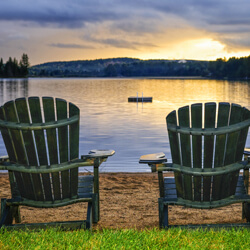 Keep your auto insurance premiums in check. Drive carefully to avoid long weekend traffic tickets and collisions.
Keep your auto insurance premiums in check. Drive carefully to avoid long weekend traffic tickets and collisions.
As we prepare to close the book on another summer, scores of Canadians will be looking to write one last chapter and will be taking to the road to make the most out of the last long weekend of the season.
Whether you're taking one last road trip with the family or making your way to the cottage, make sure you don't end up remembering the weekend for all the wrong reasons; namely getting a ticket, or worse being involved in a collision.
- Has a past ticket or collision put a dent in your wallet? Compare car insurance quotes today to see if you could save money.
On this year's Labour Day long weekend, take care when getting to where you want to go, because like you, many people will be on the road trying to squeeze the last ray of sunshine out of the summer.
Long weekend driving tips
- Get some rest before you leave so you're at your most alert.
- Buckle up and make sure everyone in the car does as well. About 5 percent of Canadians don't buckle up, yet they represent one-third of fatalities in collisions where there's been a death.
- Be patient. Long weekend traffic is going to be slow, and driving aggressively will only increase the odds that you'll get into a collision or get a ticket. If traffic congestion really gets under your skin, try to avoid the masses by leaving earlier or later than the traditional peak traffic times.
- Once traffic lets up, don't speed to make up time. Obey the limit and be safer for it. As an added bonus, you'll also save a bit of money because speeding increases your vehicle's fuel consumption. Spend less on gas (and avoid a ticket) by going the limit.
- Don't drive distracted. If you're hungry, eat before you leave or at the rest stop. Also, put your phone on mute and pre-program your route into the GPS.
- Have an alternative route planned in case your original route is too congested by traffic volume or there's a collision.
- If there is a collision on route, remember to give emergency personnel the space they need to do their job safely. Slow down and move over when passing stopped police, ambulance, fire trucks, or tow trucks with flashing lights.
- If your trip is more than a couple of hours long, plan a rest stop to get out of your vehicle to walk and stretch out your legs.
- Always leave a safe following distance between your vehicle and the vehicle ahead of you. Generally, it's recommended that you need a following distance of at least two seconds in good weather and road conditions. But, if you're following a large vehicle (that's blocking your view) or a motorcycle (who may be able to stop quicker), allow at least three seconds. In poor weather, double the distance needed to safely stop.
- Signal your intentions. Remember when changing lanes to signal your intentions as other drivers expect you to stay in the lane you're in. Also avoid unnecessary lane changes, especially in heavy traffic, as you're more likely to cause a collision.
- Don't drive impaired by alcohol or drugs; always have a designated driver.
- On your way home after the long weekend, be aware of driver fatigue. Try to get some rest before you head out, and if possible share the driving responsibilities.
Take care on the road, and take care of your auto insurance premiums
If you have plans this long weekend that require a road trip, take care in how you arrive at your destination. You don't want to have to be paying for your weekend later when you get your auto insurance renewal.




